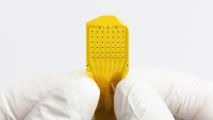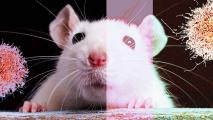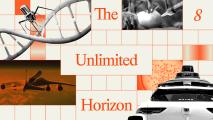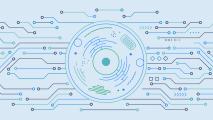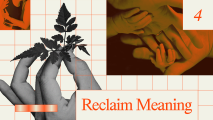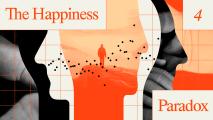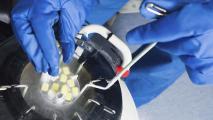
Biotech
Human history has been all but defined by death and disease, plague and pandemic. Advancements in 20th century medicine changed all of that. Now advancements in 21st century medicine promise to go even further. Could we bring about an end to disease? Reverse aging? Give hearing to the deaf and sight to the blind? The answer may be yes. And soon.
More
From cryonics to aging: How AI is transforming human health
From curing rare diseases to extending lifespans, four biotech founders share how AI is rewriting the future of medicine.
What if humans mastered every aspect of nature?
A bold vision of a 10x better future where humanity has mastered biology, energy, and matter to unlock unprecedented progress.
AI’s next frontier: Modeling life itself
Biologists are skipping the petri dish and using AI-powered virtual cells to experiment in silico.
Second opinions in the age of ChatGPT
ChatGPT and other AI-powered tools are quietly reshaping how people interpret, challenge, and act on medical advice.
How consensus can undermine science
The main objective of consensus statements appears to be to reduce doubt, which may stifle scientific inquiry.
The missing tech case for how we create an era of abundance
AI and other new technologies could make things that are costly and scarce today, cheap and abundant for all tomorrow.
The next era of psychedelics may be precision-designed states of consciousness
A look inside Mindstate Design Labs’ effort to design drugs that reliably produce specific states of consciousness.
What is The Great Progression: 2025 to 2050?
We have a historic opportunity to harness AI and other transformative technologies in order to make a much better world in the next 25 years.
Progress happens because solutions create new problems to solve
Solutionism means fully accepting what’s in front of us and enthusiastically stepping up to meet the challenge.
Arc Institute’s new AI can read and write the code of life
Training on the DNA of nearly 130,000 species taught Evo 2 how to generate DNA sequences the same way other AIs do text or images.
How cryopreservation could end death as we know it
The technology could one day allow people with terminal illnesses to go into “hibernation” until a cure is found.
How Neuralink’s chief competitor is tapping into the brain without surgery
Synchron’s brain-computer interfaces do not require brain surgery, but travel to the brain through the jugular.
How to reclaim meaning in a changing world
What if the barrier to a fulfilled life isn’t technology, it’s culture?
Has the US reached “peak obesity”?
A CDC survey suggests America’s obesity rate may be falling. Is this a turning point in the obesity epidemic? Or just a temporary plateau?
Are microplastics really destroying our health?
Scientists still don’t know how microplastics impact human health, but they do have ideas for stopping their spread.
The exciting research that may cure Parkinson’s
GeneCode is developing a drug it hopes won’t just alleviate Parkinson’s symptoms but also protect and restore patient’s neural health.
This $400 genetic test could save your life
Nucleus Genomics’ new whole genome sequencing and analysis service promises to reveal the secrets hidden in your DNA.
AI chatbots may ease the world’s loneliness (if they don’t make it worse)
AI chatbots may have certain advantages when roleplaying as our friends. They may also come with downsides that make our loneliness worse.
Why happiness is not the best indicator of well-being
Achieving values and pursuing growth is the real secret to a fulfilled life.
The future of fertility, from artificial wombs to AI-assisted IVF
A look back at the history of infertility treatments and ahead to the tech that could change everything we thought we knew about reproduction.
Get inspired with the most innovative stories shaping the world around us.





